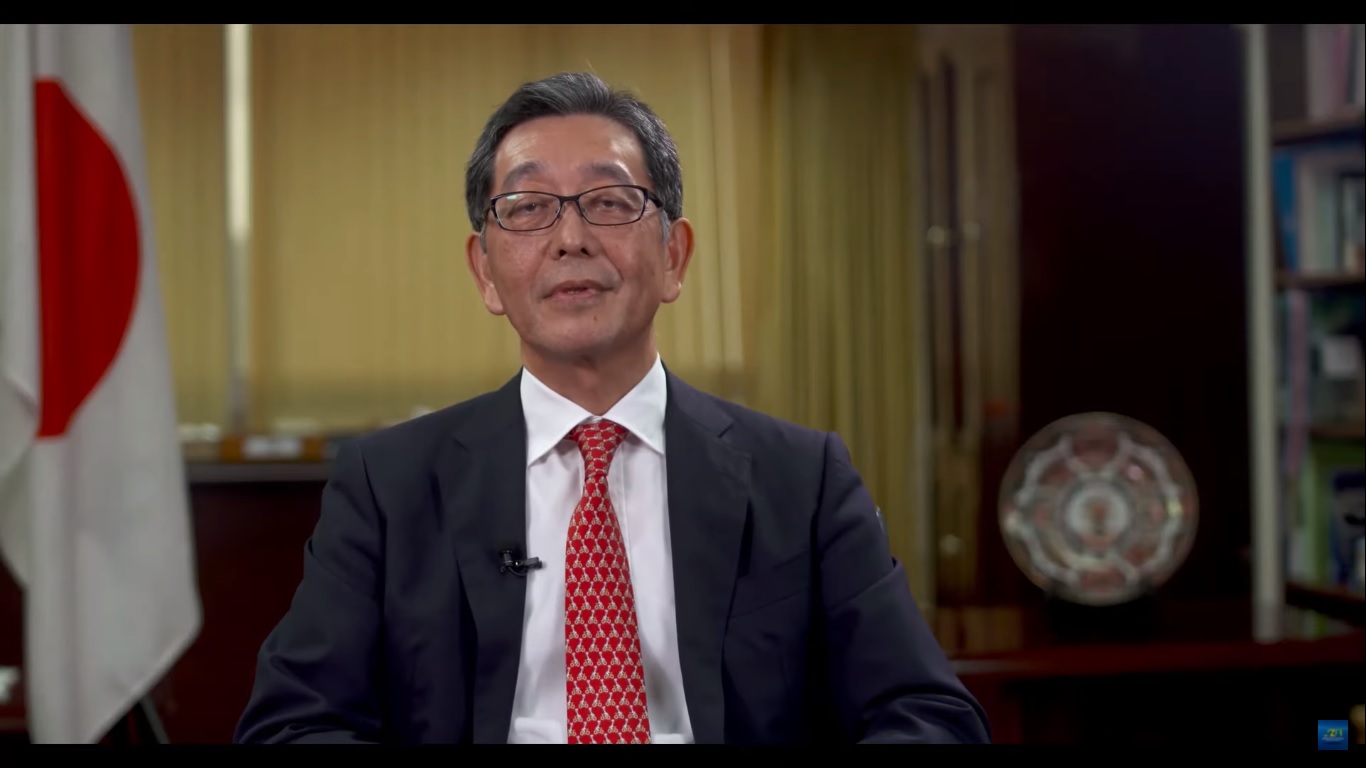Japan’s Ambassador Hails Jamaica’s Use Of Smart City Concept To Develop Logistics Hub
By: , June 13, 2021The Full Story
Japan’s Ambassador to Jamaica, His Excellency Masaya Fujiwara, has hailed the country’s use of the “smart city” concept in developing the special economic zones (SEZs) into a logistics hub as “interesting” and “ambitious”.
“Smart city approach… has the potential to enhance competitiveness, ensure economic growth, thus [helping] to resolve social problems such as improving security and the employment situation,” he said, while addressing the Jamaica Special Economic Zone Authority’s (JSEZA’s) virtual summit, recently.
A smart city is a municipality that uses information and communications technology (ICT) to increase operational efficiency, share information with the public and improve both the quality of government services and citizen welfare.
The main goal is to optimise city functions and promote economic growth while also improving the quality of life for citizens by using smart technologies and data analysis.
Ambassador Fujiwara said that smart-city development in Jamaica is a timely and adequate approach to addressing various issues the urban area faces and to tackle different challenges related to climate change, as well as new challenges the coronavirus (COVID-19) pandemic has brought.
“The eco-city and resilient city approaches of smart city concepts have relevance in Jamaica, which is susceptible to natural disasters and seeking sustainable local development,” he noted further.
Ambassador Fujiwara pointed out that Jamaica’s use of the smart city concept differs from the usual aim of addressing problems like rapid urbanisation.
“Also, developing the SEZs as a logistic hub is an interesting concept contributing to regional development. The smart city concept here is more like a new, multifaceted approach using ICT and data in various fields such as environment, energy, transportation, communication, education and the health sector, rather than to settle specific issues arising from rapid urbanisation. It is an ambitious attempt, but the Jamaican authorities can develop a project based on lessons of the past and ongoing experience of other countries,” he pointed out.
Ambassador Fujiwara shared that Japan has multiple smart cities and has embarked on overseas smart development in developing countries through public-private partnerships.
Since 2018, Japan has invested about 25 trillion yen or around US$230 billion in overseas infrastructure development and has a target of 34 trillion yen or around US$310 billion for the same purpose under its ‘Strategy of Overseas Development of Infrastructure Systems, 2025’.
The strategy emphasises carbon neutral and digital transformation approaches that will contribute to achieving the United Nations (UN) Sustainable Development Goals.
The planned Caymanas Special Economic Zone to be developed on 236 hectares and strategically located between the growing metropolitan areas of Kingston, Spanish Town and Portmore, will utilise the smart city concept.
Its aim is to make Jamaica a global leader in cargo, transhipment and logistics services.
Ambassador Fujiwara shared some of the benefits that can be derived from the SEZs and expressed his country’s anticipation in helping to make the success of the Caymanas project a reality.
“It is a pleasure if… Japan’s experience in smart city development can help the development of smart cities in Jamaica in whatever ways possible and contribute to the sustainable development of Jamaica,” he noted.




